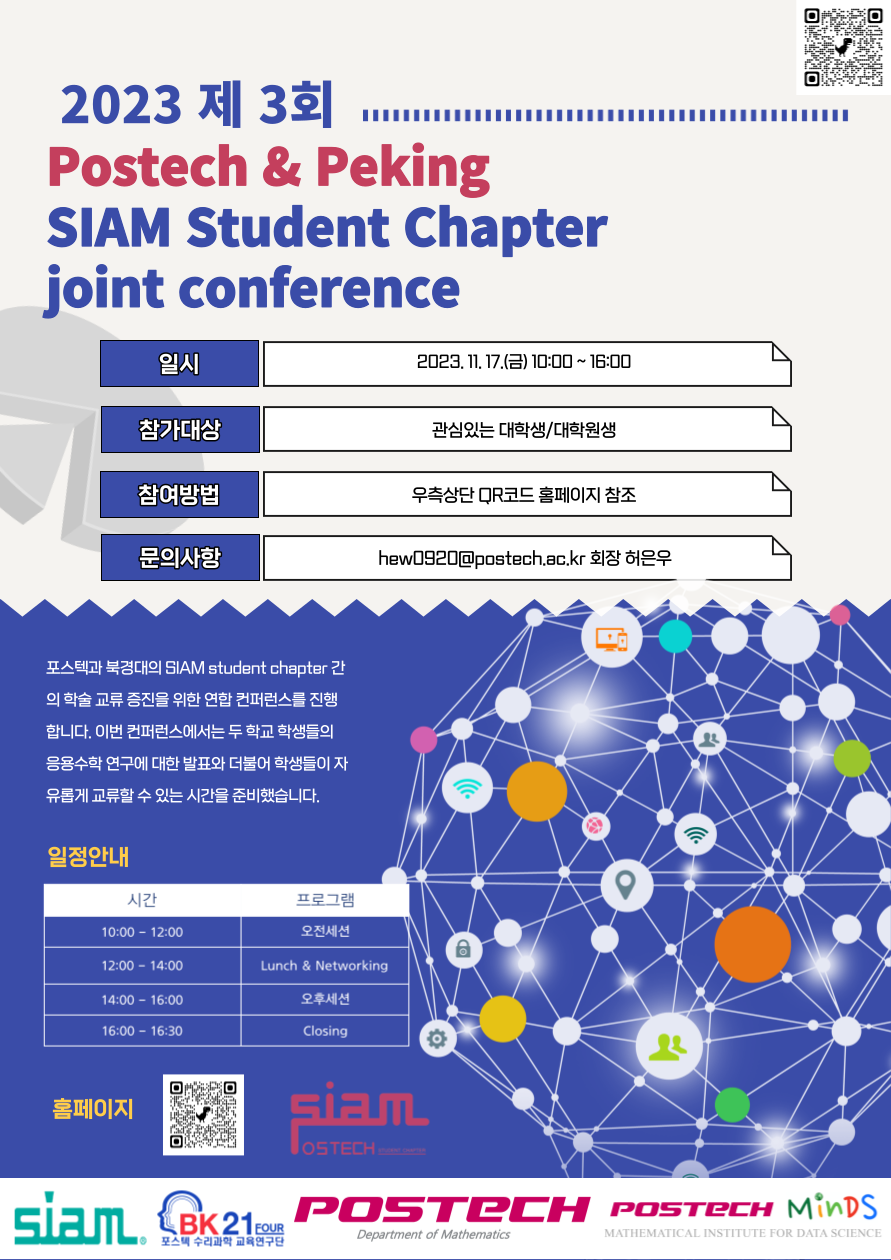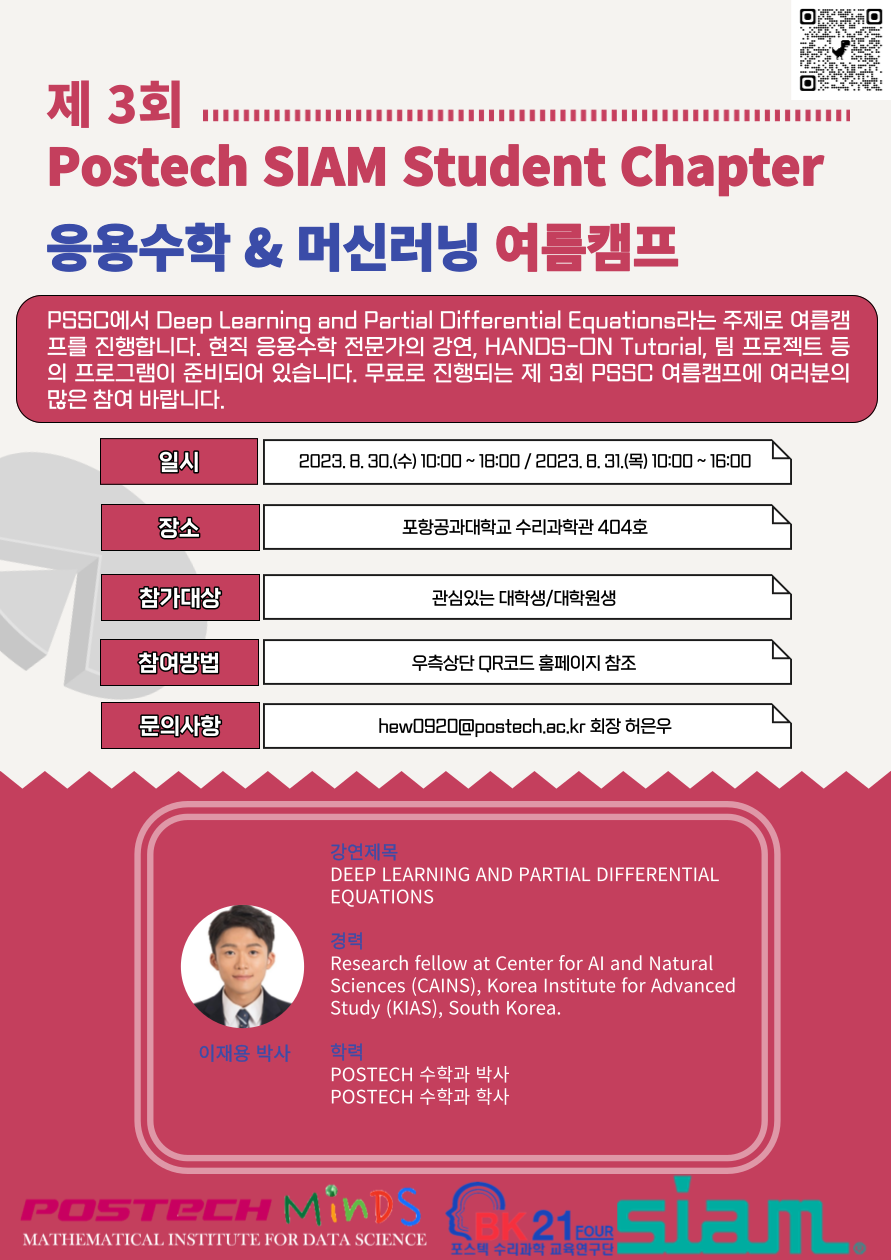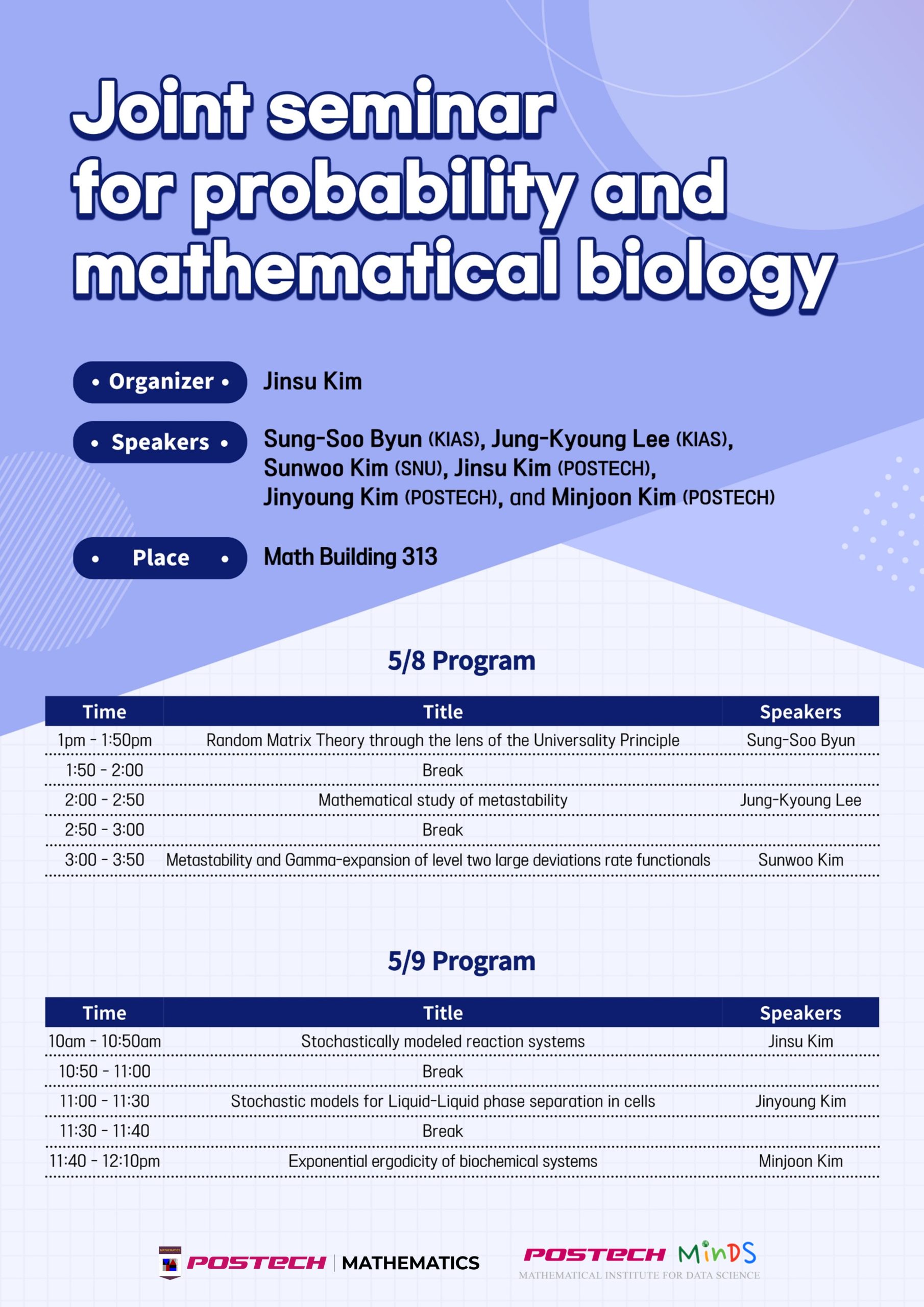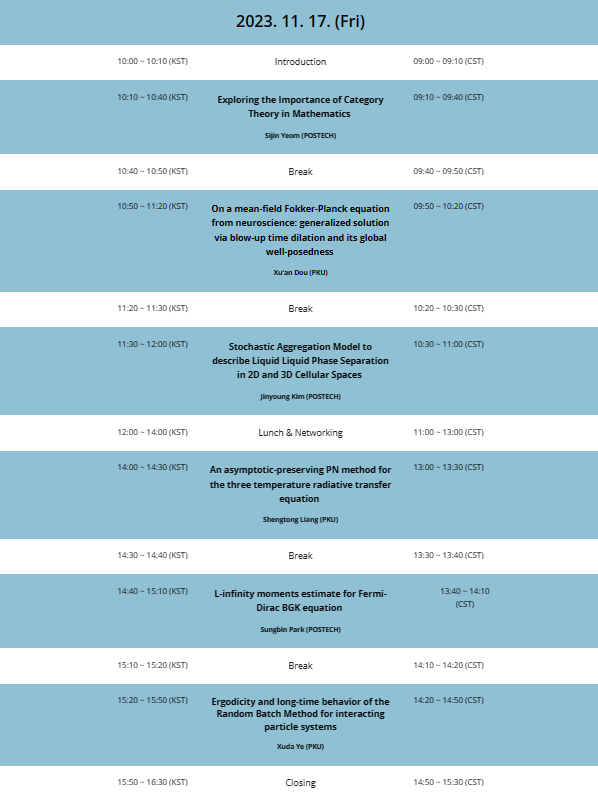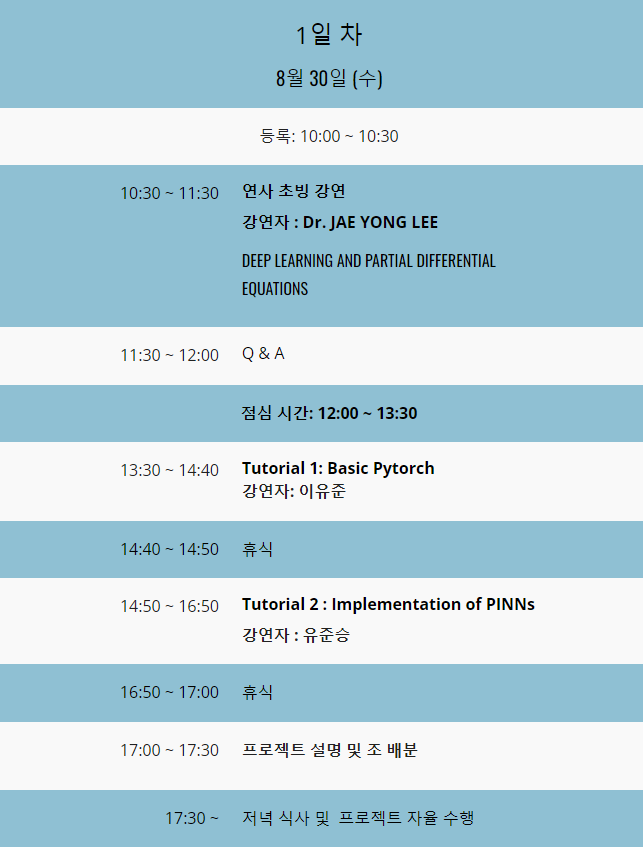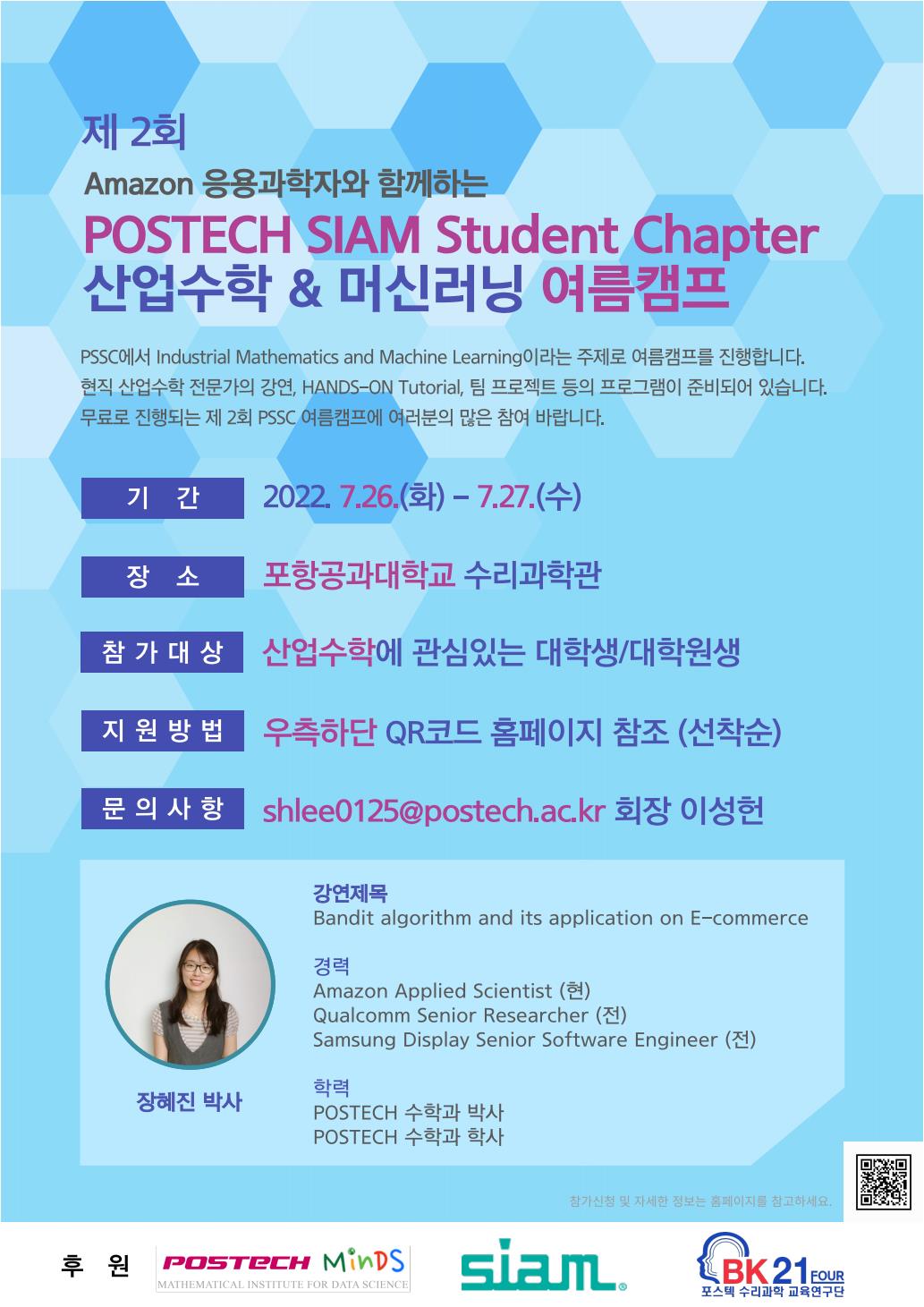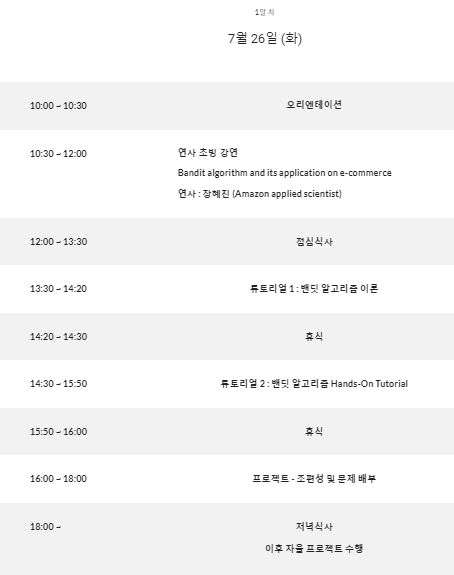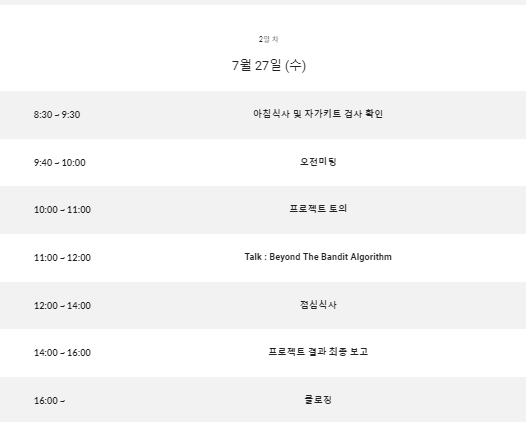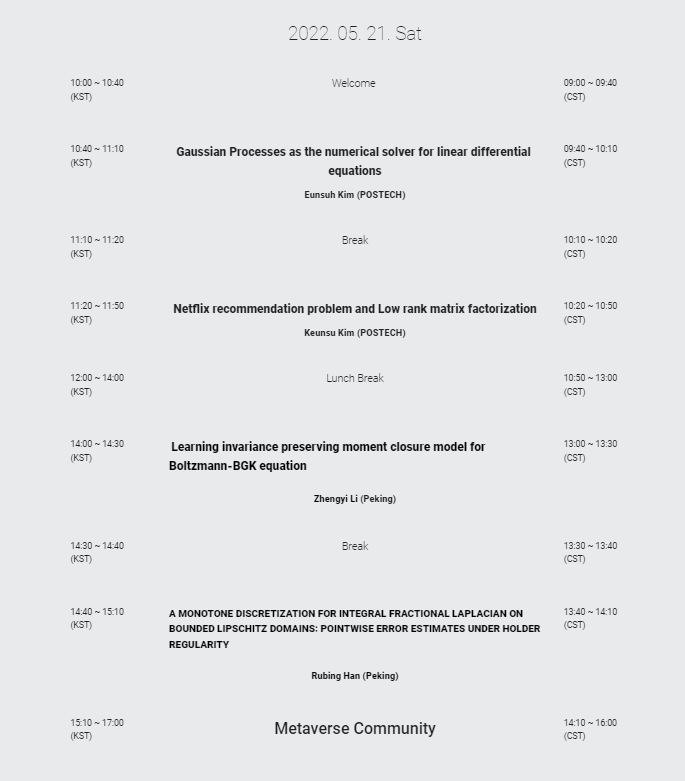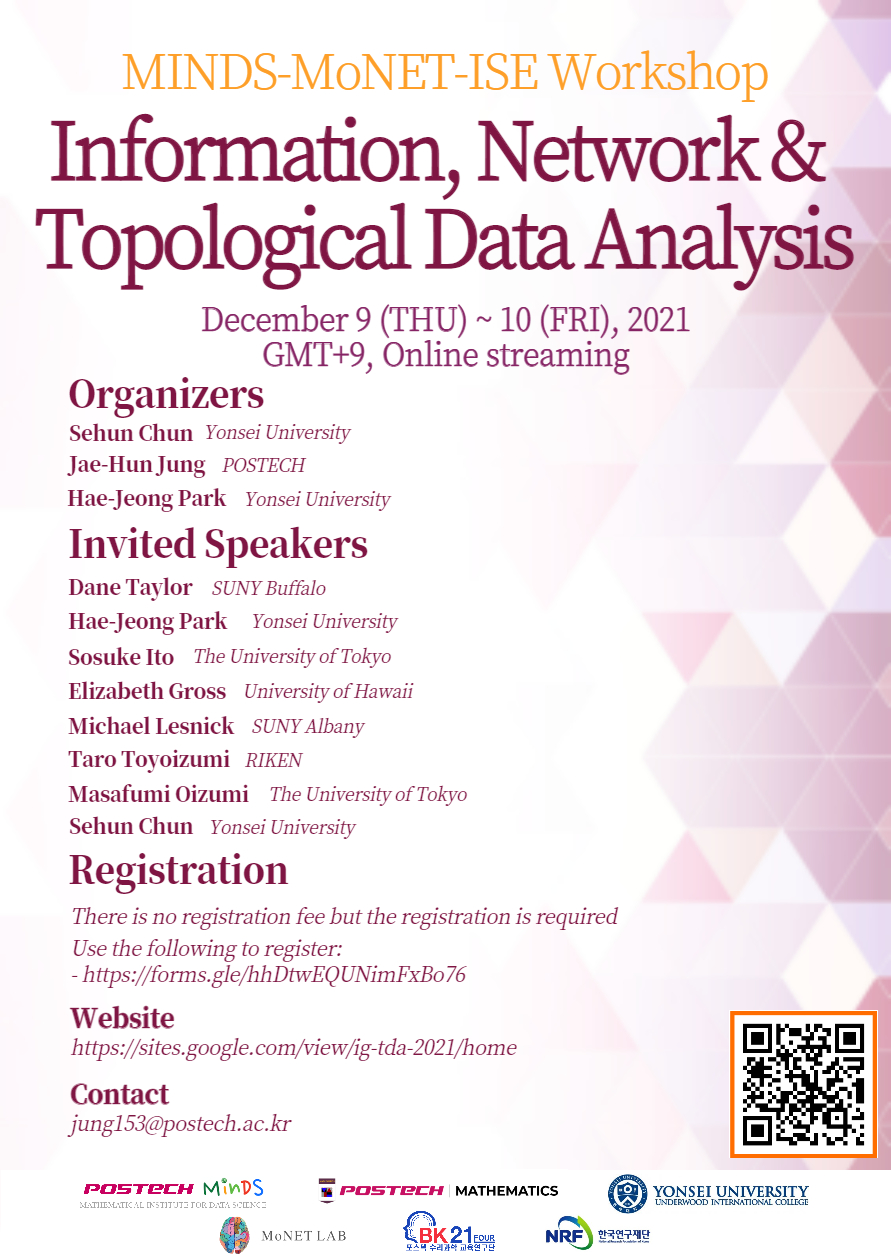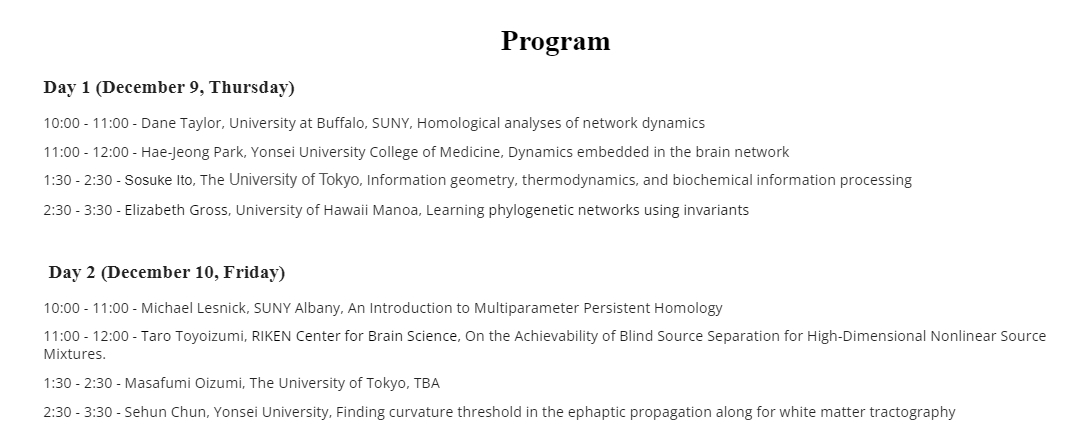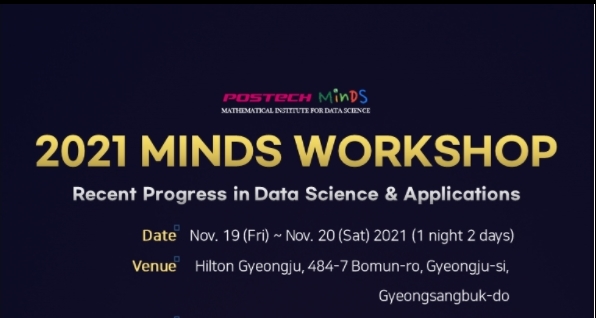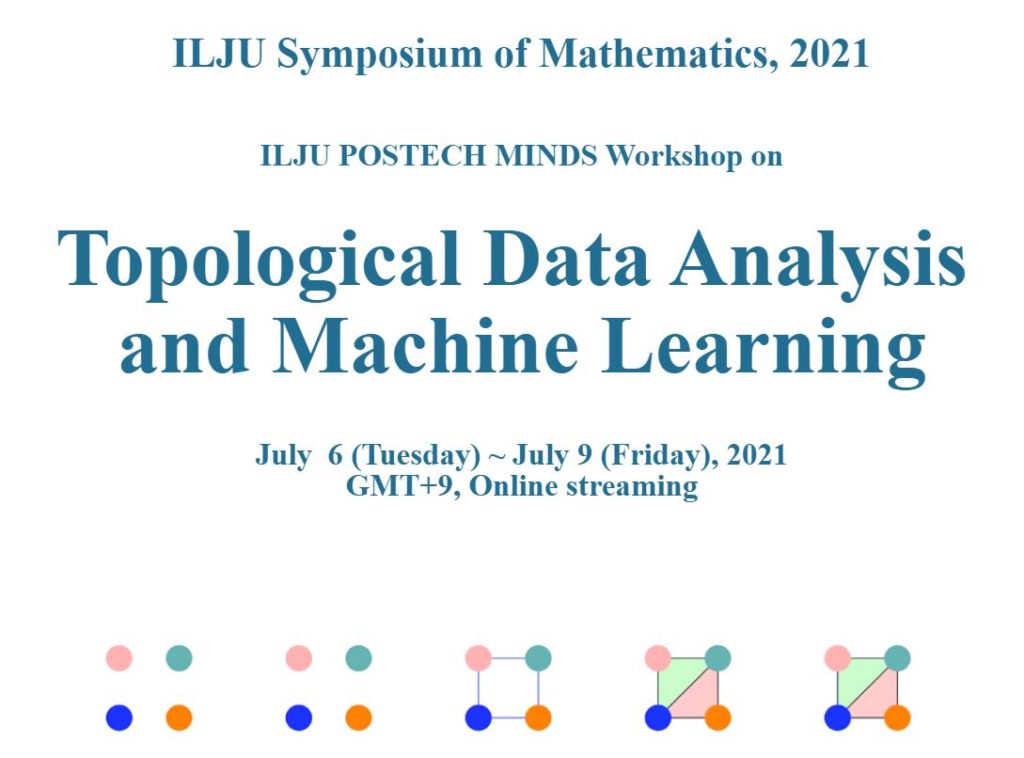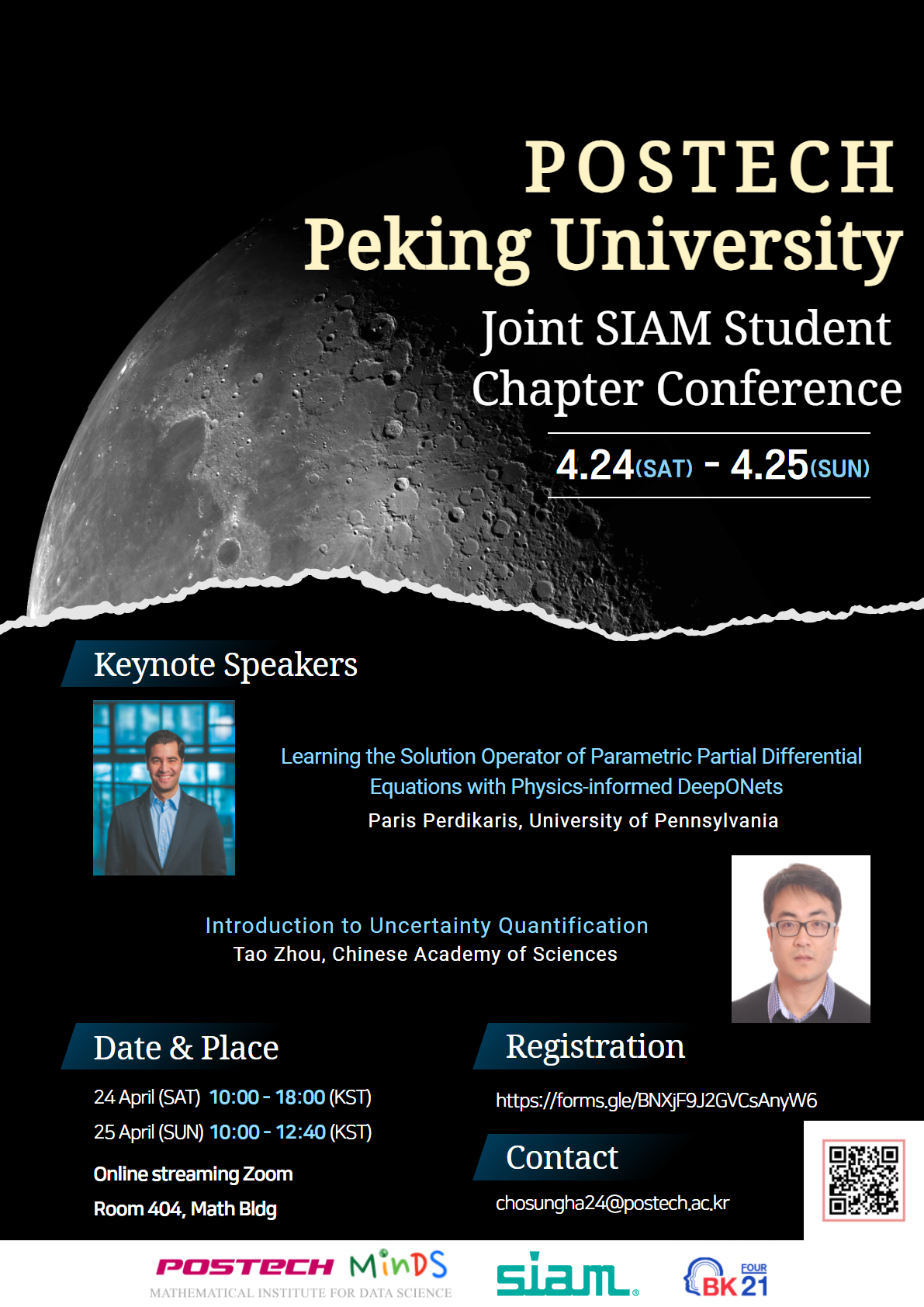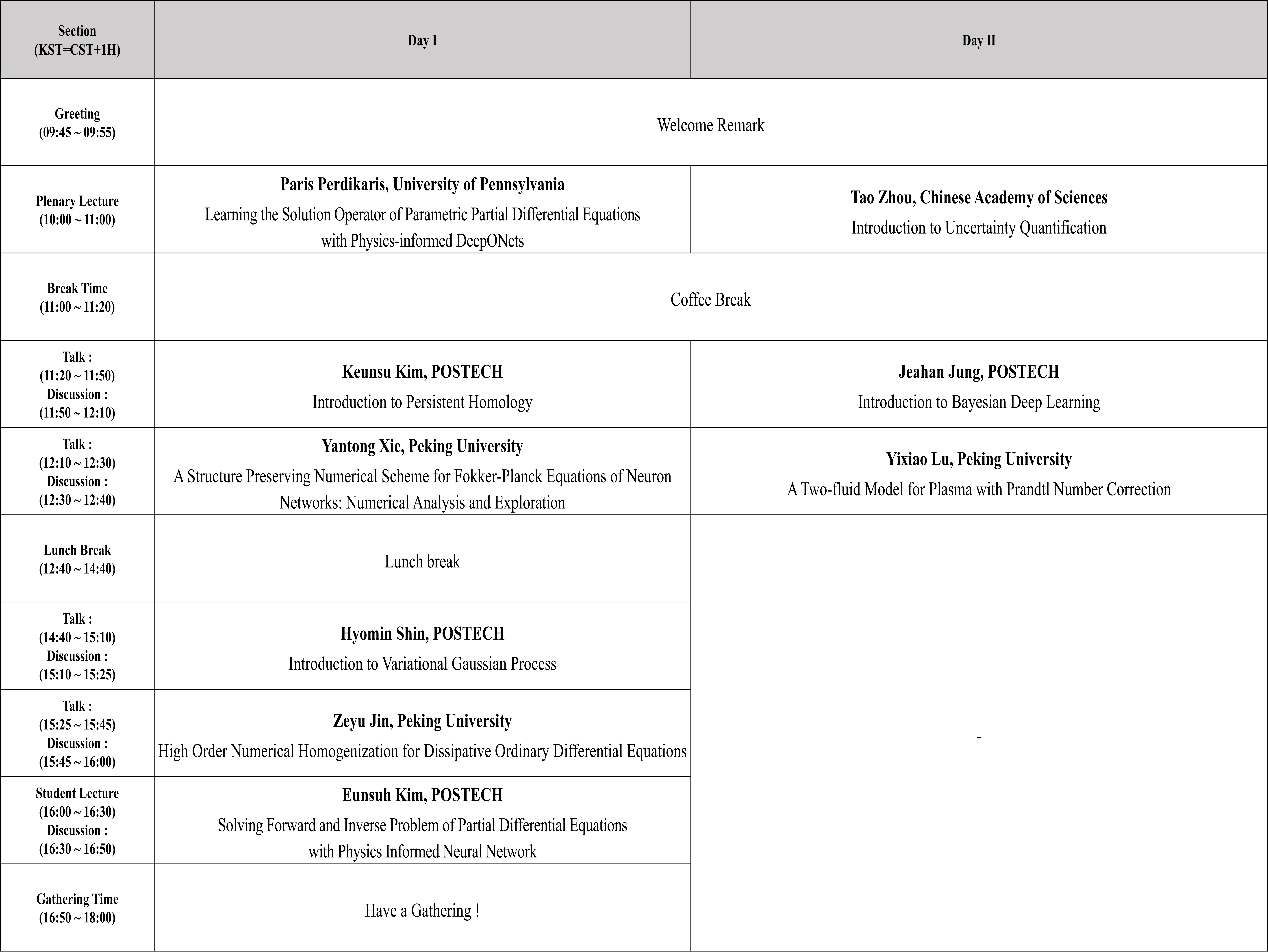Welcome to MINDS!
Established in 2020, POSTECH Mathematical Institute for Data Science (MINDS) is the community of researchers in the areas of fundamental data science, machine learning, artificial intelligence, scientific computing, and humanitarian data science. MINDS mission is to provide a platform for collaboration among researchers and to provide various opportunities for students in data science. MINDS also aims to use our data science research to serve our local and global communities pursuing humanitarian data science.
News
🌟 DACON Ranker Special Lecture: Winning Strategies for AI Competitions 🌟
2023.11.30
3nd POSTECH&Peking SIAM Student Chapter Joint Conference
2023.11.01
2023 PSSC Summer Camp
2023.10.04
[POSTECH(포항공과대학교) 수리 데이터과학 연구소 연구계약직 공고]-상시모집
2023.07.25
[POSTECH(포항공과대학교) 수리 데이터과학 연구소 연구계약직 공고]
2023.07.14
[POSTECH(포항공과대학교) 수리 데이터과학 연구소 연구교수 채용 공고]
2023.06.12
Seminar | Joint seminar for probability and mathematical biology
2023.05.02
[POSTECH(포항공과대학교) 수리 데이터과학 연구소 연구계약직 공고]
2023.02.15
Upcoming Events
Schedule
MINDS SEMINAR
MINDS Seminar Series | Jeehyun Lee (Yonsei University) - A mathematical modeling in epidemiology: the epidemiologic and economic impact of varicella and herpes zoster vaccination in South Korea
MINDS SEMINAR
period : 2024-11-12 ~ 2024-11-12
time : 17:00:00 ~ 18:00
개최 장소 : Math Bldg 404 & Online streaming (Zoom)
Topic : A mathematical modeling in epidemiology: the epidemiologic and economic impact of varicella and herpes zoster vaccination in South Korea
개요
| Date | 2024-11-12 ~ 2024-11-12 | Time | 17:00:00 ~ 18:00 |
| Speaker | Jeehyun Lee | Affiliation | Yonsei University |
| Place | Math Bldg 404 & Online streaming (Zoom) | Streaming link | ID : 688 896 1076 / PW : 54321 |
| Topic | A mathematical modeling in epidemiology: the epidemiologic and economic impact of varicella and herpes zoster vaccination in South Korea | ||
| Contents | Mathematical epidemiology is distinct from most sciences because it does not lend to experimental validation of models. In this field, experiments are often impractical and may raise ethical concerns. Consequently, mathematical models play a crucial role as tools for comparing strategies for preparing for anticipated epidemics or pandemics and responding to disease outbreaks. This lecture discusses the mathematical modeling of diseases and their applications, using the varicella-zoster virus (VZV) as an example. VZV causes two different diseases over a person’s lifetime: varicella and herpes zoster (HZ), commonly known as chickenpox and shingles, respectively. In 2005, a one-dose varicella vaccination was introduced for one-year-old children as part of Korea’s national immunization program (NIP). However, this strategy's effectiveness was moderate, leading to considerations of including a second dose in the NIP. Meanwhile, approximately 20 % of the population is expected to experience HZ during their lifetime, resulting in significant socioeconomic impacts. We developed a dynamic model of VZV to analyze the impact and cost-effectiveness of introducing a two-dose varicella vaccination for children and a zoster vaccination for adults. | ||
POSTECH SIAM Student Chapter
🌟 DACON Ranker Special Lecture: Winning Strategies for AI Competitions 🌟
2023 POSTECH & Peking SIAM Student Chapter Joint Conference
2023 PSSC Summer Camp
2022 PSSC Summer Camp
2022 POSTECH & Peking SIAM Student Chapter Joint Conference
MINDS-MoNET-ISE Workshop
Information, Network & Topological Data Analysis
2021 POSTECH MINDS WORKSHOP
Recent Progress in Data Science and Applications
- Nov. 19(Fri) ~ Nov. 20(Sat) 2021 (1 Night 2 Days)
- Workshop homepage
Fall 2021 Seminar Series
MINDS Seminar Series on Data Science, Machine Learning, and Scientific Computing
Every Tuesdays 05:00 PM
ILJU POSTECH MINDS Workshop on TDA and ML
July 6 ~ July 9
Registration is required (please register here)

